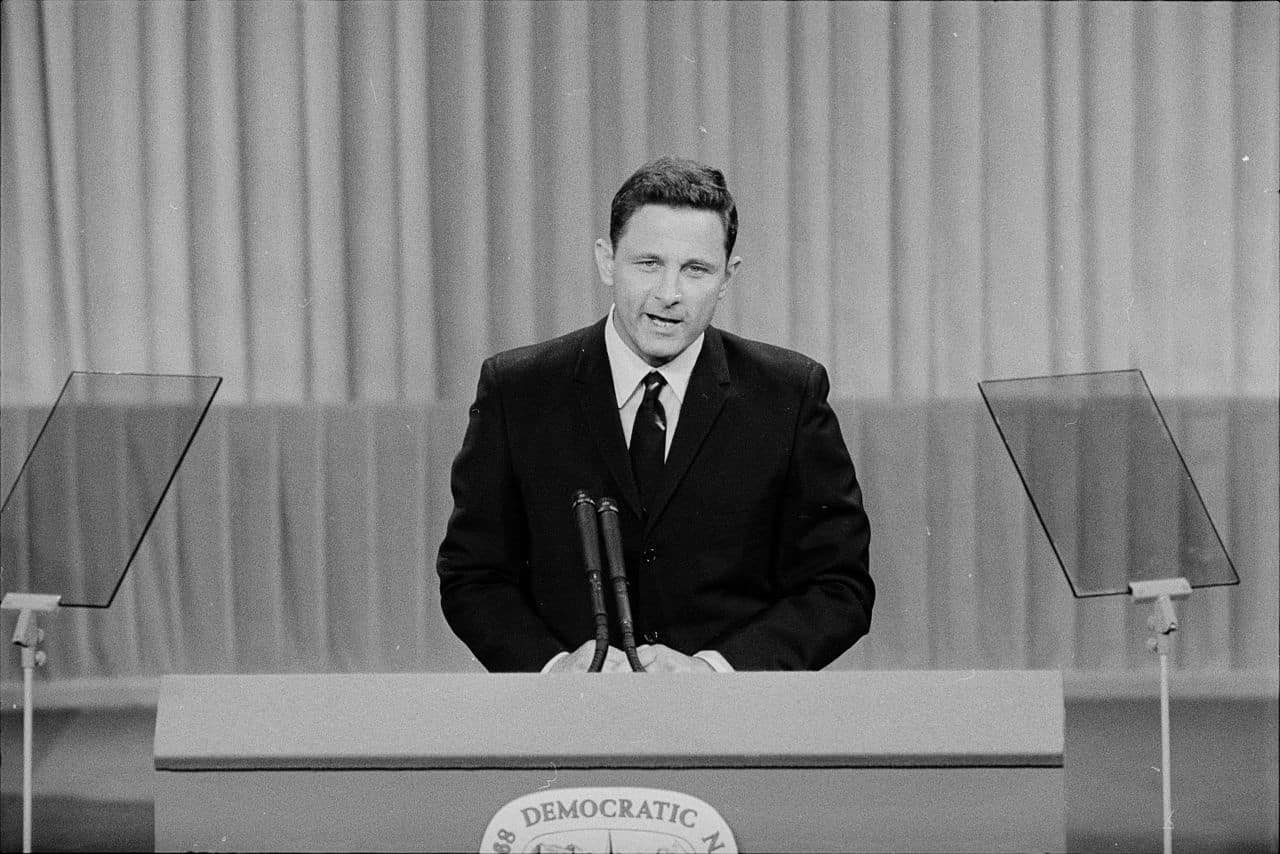Former U.S. Sen. Birch Bayh, who championed the Title IX federal law banning discrimination against women in college admissions and sports, died at his home Thursday at age 91.

Bayh was surrounded by family at his home in Easton, Maryland when he died just past midnight from pneumonia, his family said in a statement. His son, Evan, followed him into politics and became Indiana’s governor and a senator.
The liberal Democrat had a back-slapping, humorous campaigning style that helped him win three close elections to the Senate starting in 1962, at a time when Republicans won Indiana in four of the five presidential elections. Bayh’s hold on the seat ended with a loss to Dan Quayle during the 1980 Ronald Reagan-led Republican landslide.
Bayh (pronounced “by”) sponsored a constitutional amendment lowering the voting age to 18 amid protests over the Vietnam War and another change allowing the replacement of vice-presidents.
But it was his work to pass the landmark Title IX law that solidified his legacy. He wrote and was the lead sponsor of the 1972 law, which prohibits gender discrimination in education — known as Title IX for its section in the Higher Education Act.
The law’s passage came at a time when women earned fewer than 10 percent of all medical and law degrees, and fewer than 300,000 high school girls — one in 27 — played sports. Now, women make up more than half of those receiving bachelor’s and graduate degrees, and more than 3 million high school girls — one in two — play sports.
Bayh said the law was aimed at giving women a better shot at higher-paying jobs, and he continued speaking in support of Title IX’s enforcement for years after leaving Congress.
“It was clear that the greatest danger or damage being done to women was the inequality of higher education,” Bayh said in a 2012 interview. “If you give a person an education, whether it’s a boy or girl, young woman or young man, they will have the tools necessary to make a life for families and themselves.”
Tennis great Billie Jean King, who worked with Bayh on women’s rights issues, released a statement with his family Thursday saying the former senator was “one of the most important Americans of the 20th century.”
“You simply cannot look at the evolution of equality in our nation without acknowledging the contributions and the commitment Senator Bayh made to securing equal rights and opportunities for every American,” King said.
Birch Bayh also used his position as head of the Senate’s constitutional subcommittee to craft the 25th Amendment on presidential succession and the 26th Amendment setting the national voting age at 18.
The issue of presidential succession was fresh when Congress approved the amendment in 1967. The vice president had been vacant for more than a year after President John F. Kennedy’s assassination because there was no provision for filling the office between elections.
The amendment led to the presidency of Gerald Ford less than a decade later when Ford first succeeded Spiro Agnew as vice-president and then took over the White House after President Richard Nixon’s resignation during the Watergate scandal.
Bayh’s push to lower the national voting age from 21 to 18 came amid protests over the Vietnam War and objections that Americans dying on battlefields were unable to vote in all states. The amendment won ratification from the US states in 1971.
Bayh also was a leading sponsor of the Equal Rights Amendment, which would have barred discrimination by gender. It passed Congress but failed to win approval from two-thirds of the states by its 1982 deadline.
“The only person since the Founding Fathers to draft more than one amendment to the Constitution, Senator Bayh devoted his life to championing the rights of all Americans – especially women, people of color, young people, and others whom history had too long pushed to the margins,” his family said in a statement.
Birch Bayh had begun preparing to make a run for the 1972 Democratic presidential nomination when his first wife, Marvella, was diagnosed with breast cancer. He dropped that campaign but entered the 1976 presidential campaign, finishing second to Jimmy Carter in the opening Iowa caucuses but then faring poorly in later primaries.
Marvella Bayh gained attention by speaking and making television appearances around the country promoting cancer detection and encouraging research. But her cancer later returned, and she died in April 1979 at age 46, shortly before her memoir recounting her health fight was published.
Birch Bayh sought a fourth Senate term the following year — with their 24-year-old son Evan as campaign manager — but lost to Quayle, then a two-term congressman. Source: Meadow-Lake-Now







